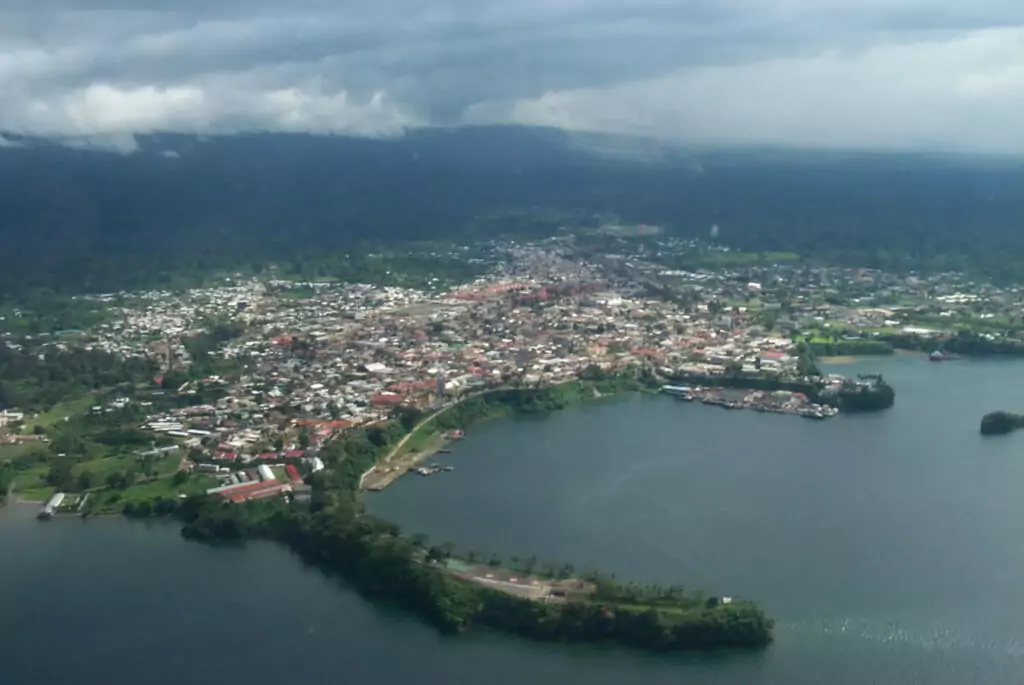When we think of Spanish-speaking countries, our minds often travel to Central and South America. However, the reach of the Spanish language extends far beyond these regions, intriguingly embedding itself in the diverse linguistic tapestry of Africa. This article delves into the unique presence of Spanish in Africa, exploring its historical roots and current status.

✅ AI Essay Writer ✅ AI Detector ✅ Plagchecker ✅ Paraphraser
✅ Summarizer ✅ Citation Generator
Spanish, a language spoken by millions worldwide, has a surprising but significant presence in Africa. While Equatorial Guinea is the only African country with Spanish as its official language, several other areas on the continent also have notable Spanish-speaking populations. This linguistic phenomenon is largely a legacy of colonial history, leaving a lasting impact on the cultural and linguistic landscapes of these regions.
Equatorial Guinea
Equatorial Guinea stands out as the only African nation where Spanish is the official language. This small country, nestled on the western coast of Africa, became independent from Spain in 1968. Despite its independence, it retained Spanish as the primary language, a decision reflecting both its colonial past and its modern identity. French and Portuguese are also spoken here, testament to the region’s complex colonial history.
Interestingly, the Spanish spoken in Equatorial Guinea has its own unique characteristics. It’s heavily influenced by local Bantu languages, leading to distinct dialectal features. For instance, the lack of distinction between “s” and “z” sounds and the omission of definite articles are notable aspects of Equatoguinean Spanish.

Northern Morocco
In Northern Morocco, the cities of Ceuta and Melilla represent fascinating examples of Spanish influence. These cities, once under Spanish control, have maintained Spanish as their main language even after Morocco’s independence. Today, they function as autonomous Spanish territories, unique in their recognition of Muslim holidays and their distinct dialects that echo European Spanish.
The history of Spanish presence in Morocco dates back to the early 20th century when parts of northern Morocco fell under Spanish influence. This era left a profound linguistic imprint, evident in the continued use of Spanish in Ceuta and Melilla.

Western Sahara
The Western Sahara region, particularly the Sahrawi Arab Democratic Republic, showcases another aspect of Spanish influence in Africa. Here, Spanish is widely used in media and communication, reflecting the region’s past as a part of Spanish Sahara. The local population, many of whom have ties to Spain and other Spanish-speaking countries, have incorporated numerous Spanish words into their daily vocabulary.

Algeria
The city of Oran in Algeria, once a Spanish stronghold, still bears the marks of its Spanish past. The old Spanish quarter and the city’s architecture are testaments to this history. The Cervantes Institutes in Oran symbolize the ongoing cultural exchange between Algeria and Spain.
Tindouf, an Algerian town, is home to a significant number of Sahrawi refugees. These refugees have brought with them the Spanish language from Western Sahara, contributing to the linguistic diversity of the region.

The presence of Spanish in Africa is a fascinating blend of history, culture, and language. From the official status in Equatorial Guinea to the historical remnants in Northern Morocco and Algeria, Spanish serves as a living reminder of the continent’s diverse and complex past. This linguistic legacy not only enriches the cultural tapestry of Africa but also highlights the far-reaching influence of the Spanish language across continents.
Follow us on Reddit for more insights and updates.





Comments (0)
Welcome to A*Help comments!
We’re all about debate and discussion at A*Help.
We value the diverse opinions of users, so you may find points of view that you don’t agree with. And that’s cool. However, there are certain things we’re not OK with: attempts to manipulate our data in any way, for example, or the posting of discriminative, offensive, hateful, or disparaging material.